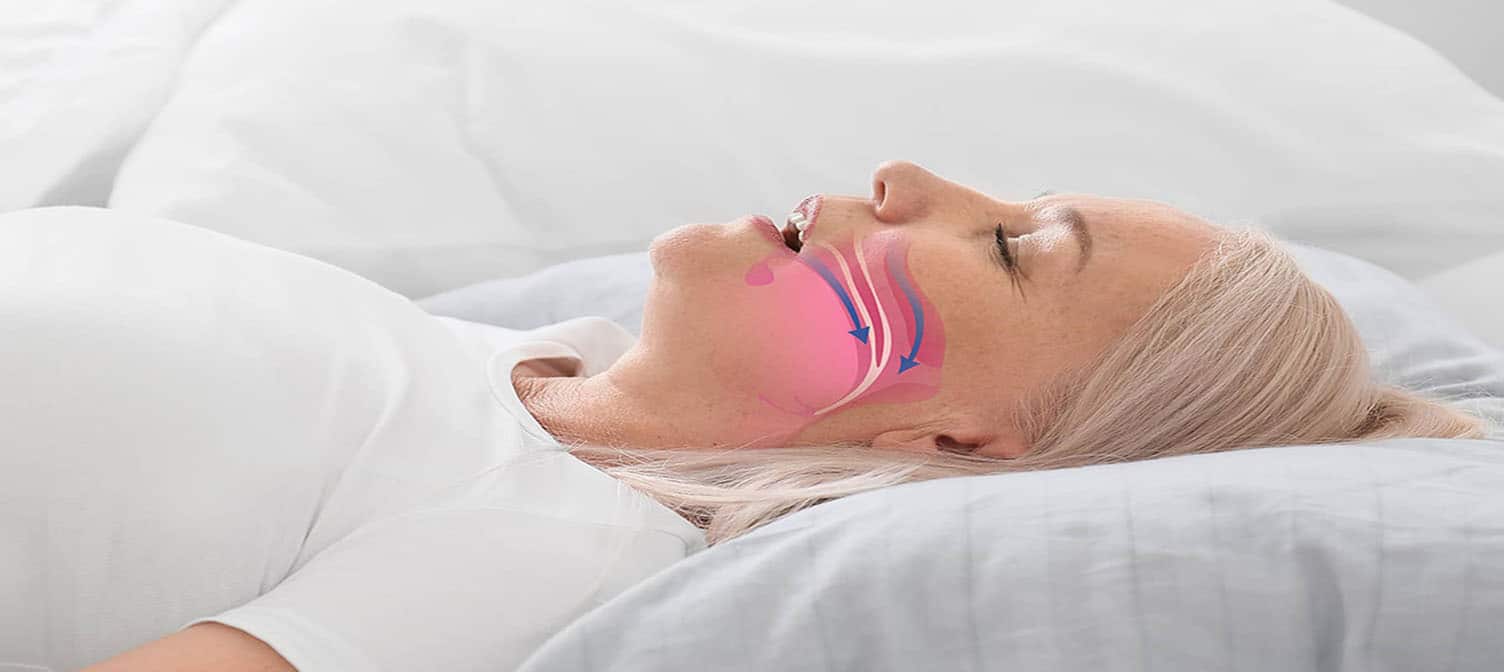Sleep apnea disrupts sleep patterns, affecting overall health and quality of life. Common symptoms include loud snoring, excessive daytime sleepiness, morning headaches, daytime fatigue, mood changes, dry mouth, and sore throat upon waking. Bed partners may notice breathing interruptions or sleep apnea episodes during the night.
Obstructive sleep apnea is the most common form, caused by soft tissues at the back of your throat collapsing and creating airway obstruction. Central sleep apnea is less common but equally a serious condition affecting breathing patterns and blood oxygen levels.
Table of Contents
Natural Remedies and Lifestyle Changes
Excess body weight is a major risk factor that can increase airway blockage, but weight management through regular exercise and a balanced diet may reduce sleep apnea severity while boosting energy levels and overall health. Regular physical activity strengthens respiratory muscles and supports better sleep quality. In addition to nutrition and exercise, avoiding alcohol consumption makes sense, as it relaxes throat muscles and worsens sleep apnea symptoms. Limiting alcohol intake, especially before bedtime, is crucial for better sleep.
The way you sleep also matters. Side sleeping for those suffering from sleep apnea might be an effective sleeping position strategy, as it helps prevent soft tissue collapse at the back of the throat. Combat dry air using humidifiers to maintain optimal humidity levels while you sleep as well. Saline nasal spray or a neti pot can help relieve nasal congestion and improve breathing patterns. Maintaining a consistent sleep schedule along with relaxation techniques can support better rest and improve overall sleep patterns. These natural approaches can complement traditional treatments and enhance your treatment plan.
Oral Health and Sleep Apnea Connection
Sleep apnea is often influenced by oral structures including the lower jaw, tongue, and back of your throat anatomy. A narrow airway or receding jaw can lead to obstruction during sleep cycles, resulting in poor sleep quality and reduced blood oxygen levels.
Custom oral appliances serve as effective treatment options, repositioning the jaw to keep airways open and improving breathing patterns. These devices offer an alternative to continuous positive airway pressure (CPAP) therapy with higher patient compliance rates.
Regular dental care plays a crucial role in sleep health, as professional cleanings help reduce airway inflammation. Targeted throat exercises strengthen muscles around the airway, lowering the risk of collapse and supporting deeper, more restorative sleep while addressing sleep apnea causes.
When to Consult Medical Professionals
Sleep apnea requires evaluation by healthcare professionals or a sleep medicine specialist. A sleep study at a sleep center or home sleep test can determine sleep apnea severity and guide your treatment plan. The first step toward effective treatment involves understanding whether you need medical interventions alongside natural approaches.
Untreated sleep apnea increases higher risk of high blood pressure, heart disease, and heart failure, making professional evaluation essential for your overall health and family history assessment.
Choose Bloom Dental for Comprehensive Care
At Bloom Dental, we understand the vital connection between oral health and sleep medicine. Our experienced team specializes in custom oral appliances designed to help treat sleep apnea naturally while maintaining comfort and supporting better sleep.
Contact us today to schedule your consultation. We’ll explain the consultation process and answer questions about how oral appliances can enhance your sleep apnea treatment plan for improved sleep quality and restful sleep.

